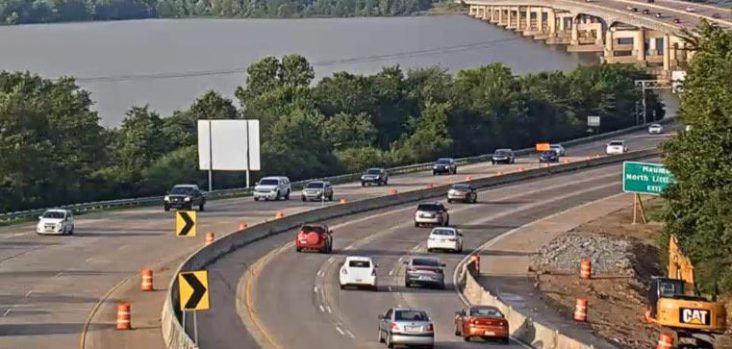Gov. Hutchinson: Poll shows voters moved by highway tax’s statewide benefit
by November 26, 2019 6:31 pm 1,193 views

The message that generates the most support for a proposed half-cent sales tax extension is that it would affect highways in all four corners of the state, Gov. Asa Hutchinson said Tuesday (Nov. 26).
Speaking to the Arkansas Good Roads Foundation Annual Meeting, Hutchinson said that 68.6% of respondents in an Oct. 9th poll of 800 likely state voters said that argument would make them more likely to support the tax extension. That polled at the highest percentage among the messages presented to respondents.
The poll by Gilmore Strategy Group showed that 62% of likely voters either would support or probably would support the extension. Support among Republicans was 61%, Hutchinson said. The poll had a plus-minus margin of error of 3.46%.
Hutchinson said the numbers showed that a key to gaining support for the extension is communicating that it’s a statewide plan.
He said he is “fully committed” to passing the extension.
“This is my number one priority in terms of a state campaign here in Arkansas,” he said. “Not anything gonna distract me from it. This is a focus because it is so critical to the future of our state.”
Hutchinson later told reporters he might support the effort with money from his political action committee.
Led by Hutchinson, legislators this year voted to refer a constitutional amendment to voters next November that will make permanent the half-cent sales tax currently funding the Connecting Arkansas Program. That tax was approved by more than 58% of the voters in 2012.
Continuing that tax would provide $205 million annually to the Arkansas Department of Transportation for system preservation and construction, and $43 million each to cities and counties on a yearly basis. The CAP was dedicated to specific projects, most of which are completed or under construction, but cities and counties would face a loss of that money if the amendment doesn’t pass.
Hutchinson and lawmakers this year also approved $95 million in system preservation funding through a motor fuels tax, electric and hybrid vehicle registration fees, and casino revenues.
If the amendment passes, ARDOT would have $300 million a year more in construction funding than it otherwise would have had before this year’s legislative session. Of the $300 million, 76% would be dedicated to system preservation and 24% would be for capital and congestion relief.
Another key to passage is achieving public buy-in, which Hutchinson said will be aided by a planned 12 public meetings between January and April by the Arkansas Department of Transportation.
Supporters must also explain that the measure is not a new tax but an extension of an existing tax, that cities and counties each will lose $43 million annually if the extension doesn’t pass, and that the tax will result in economic benefits. He said he referred three calls from expanding industries that week to the Highway Commission.
Hutchinson said states will have to address their own infrastructure needs.
“Ladies and gentlemen, the federal government is not a solution for the highway, road and infrastructure needs that we have in Arkansas,” he said. He later added, “With little hope from Washington, Arkansas is now taking control of its own destiny with the 2019 transportation plan.”
